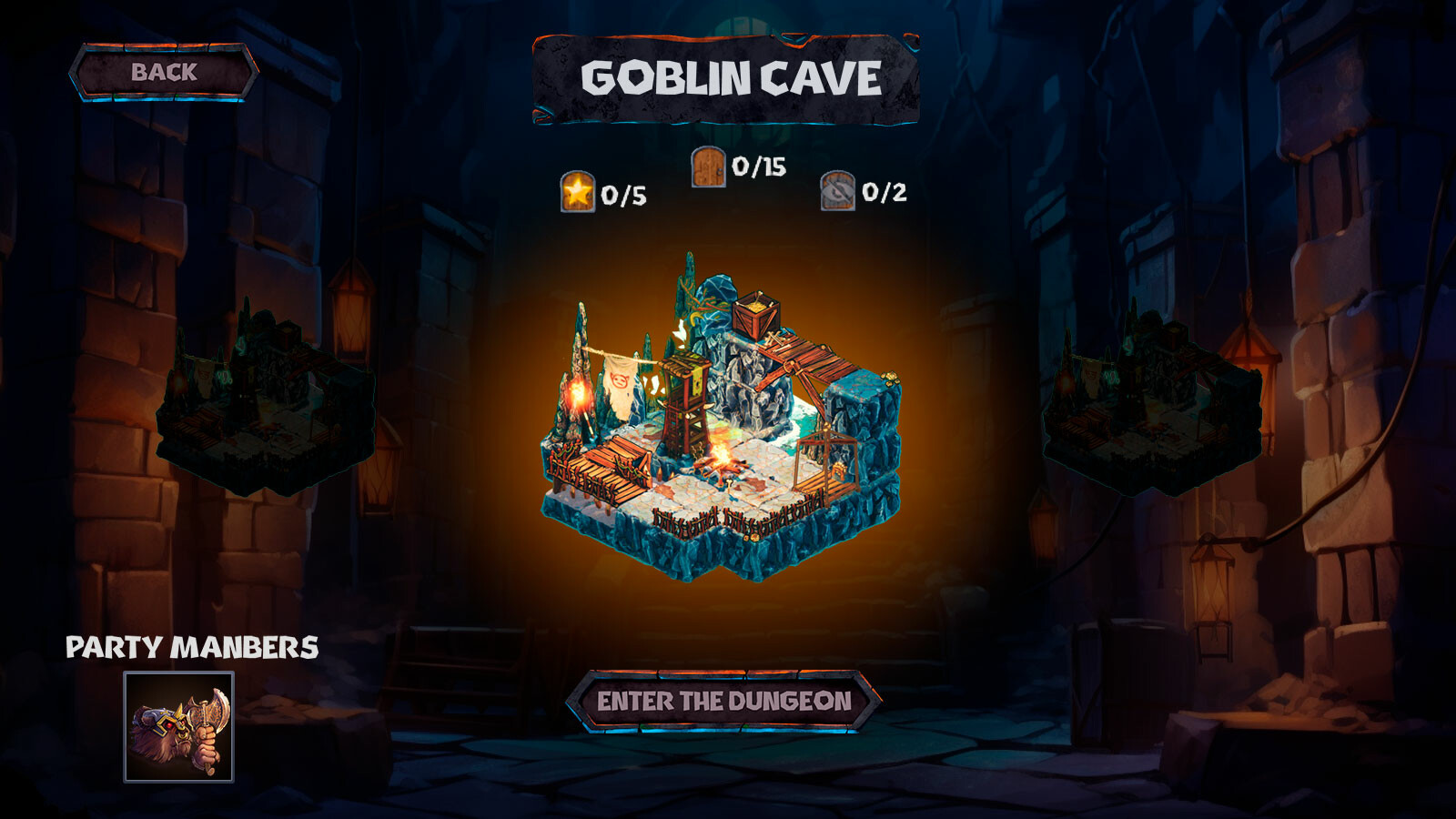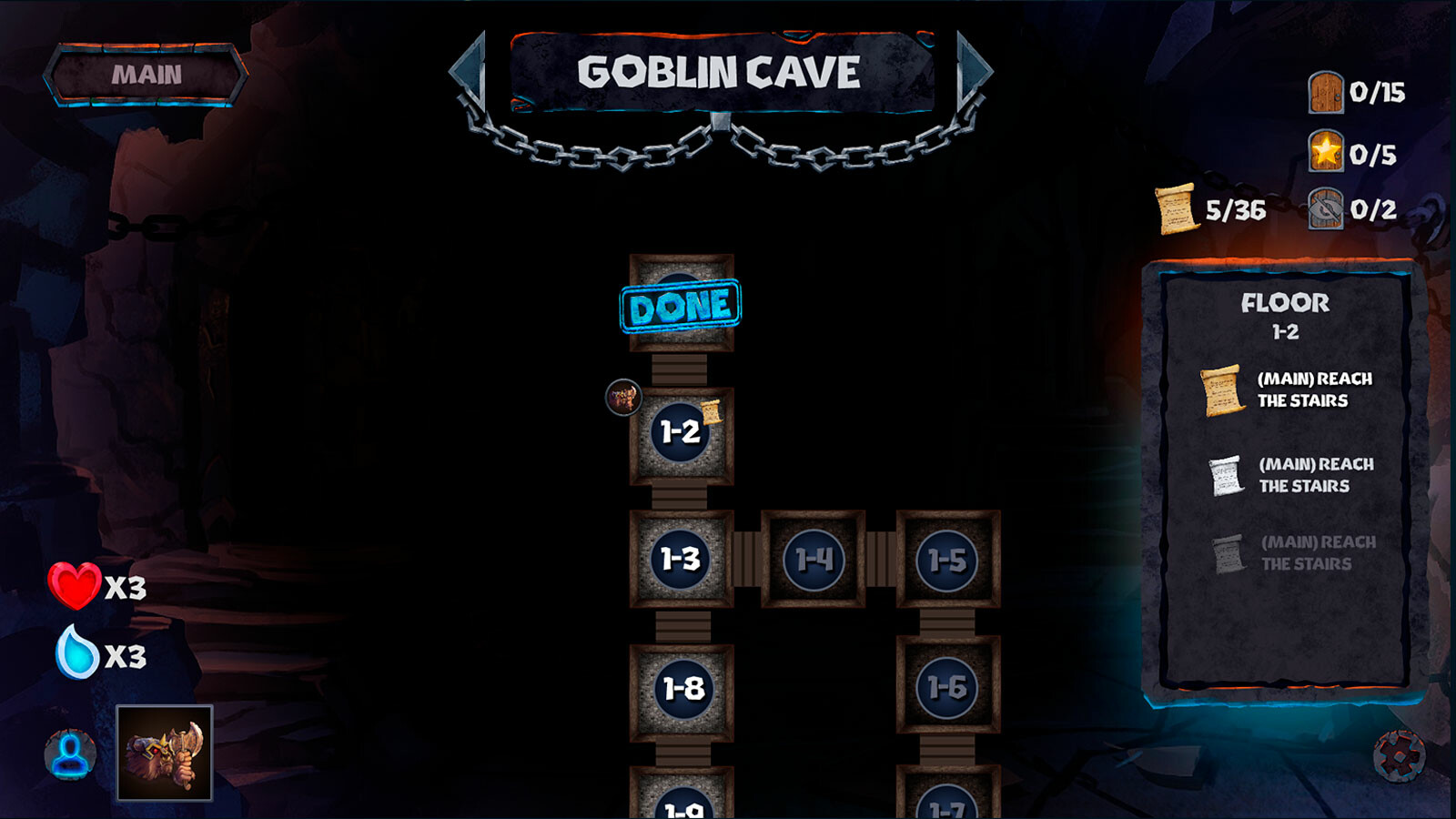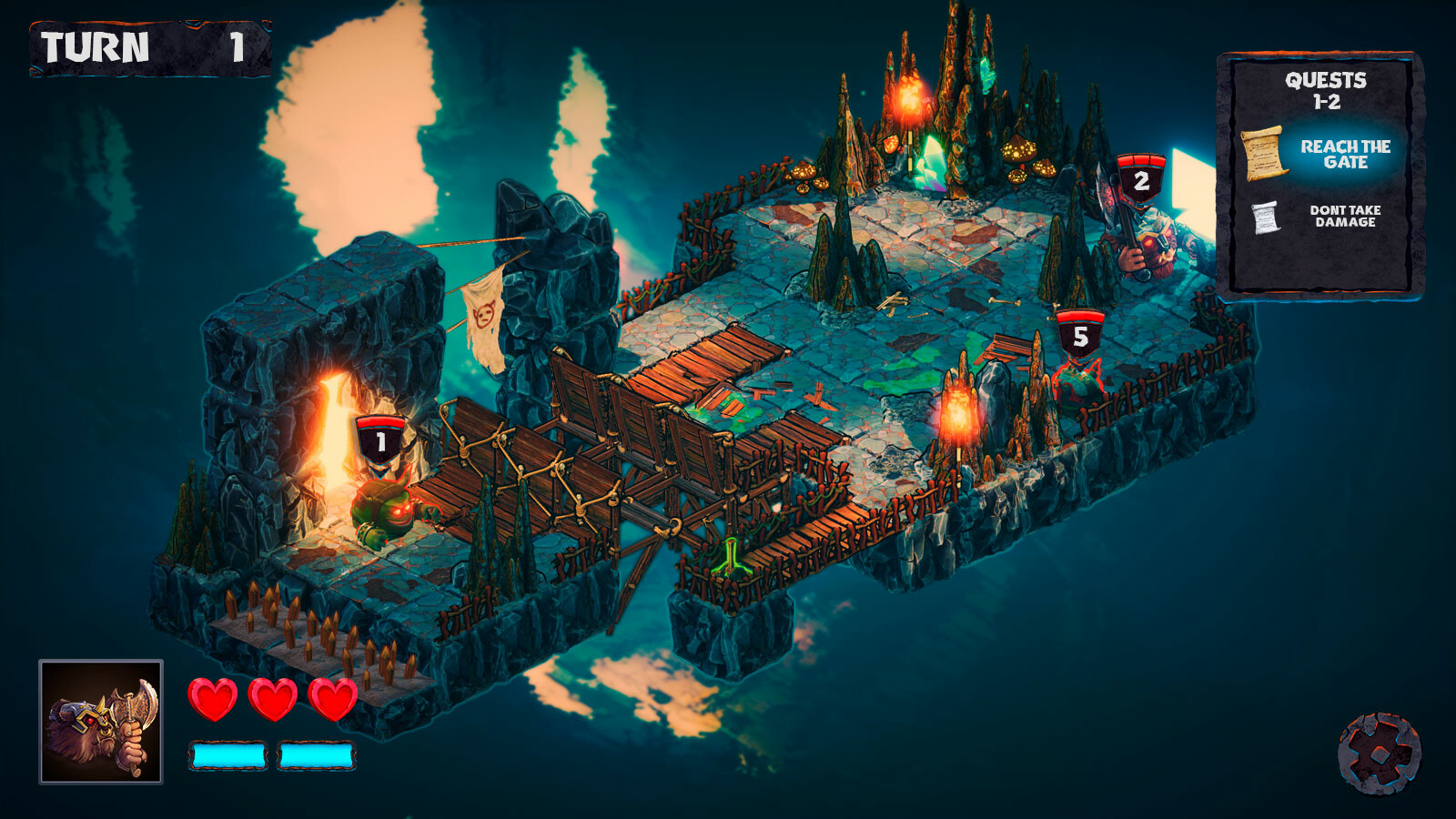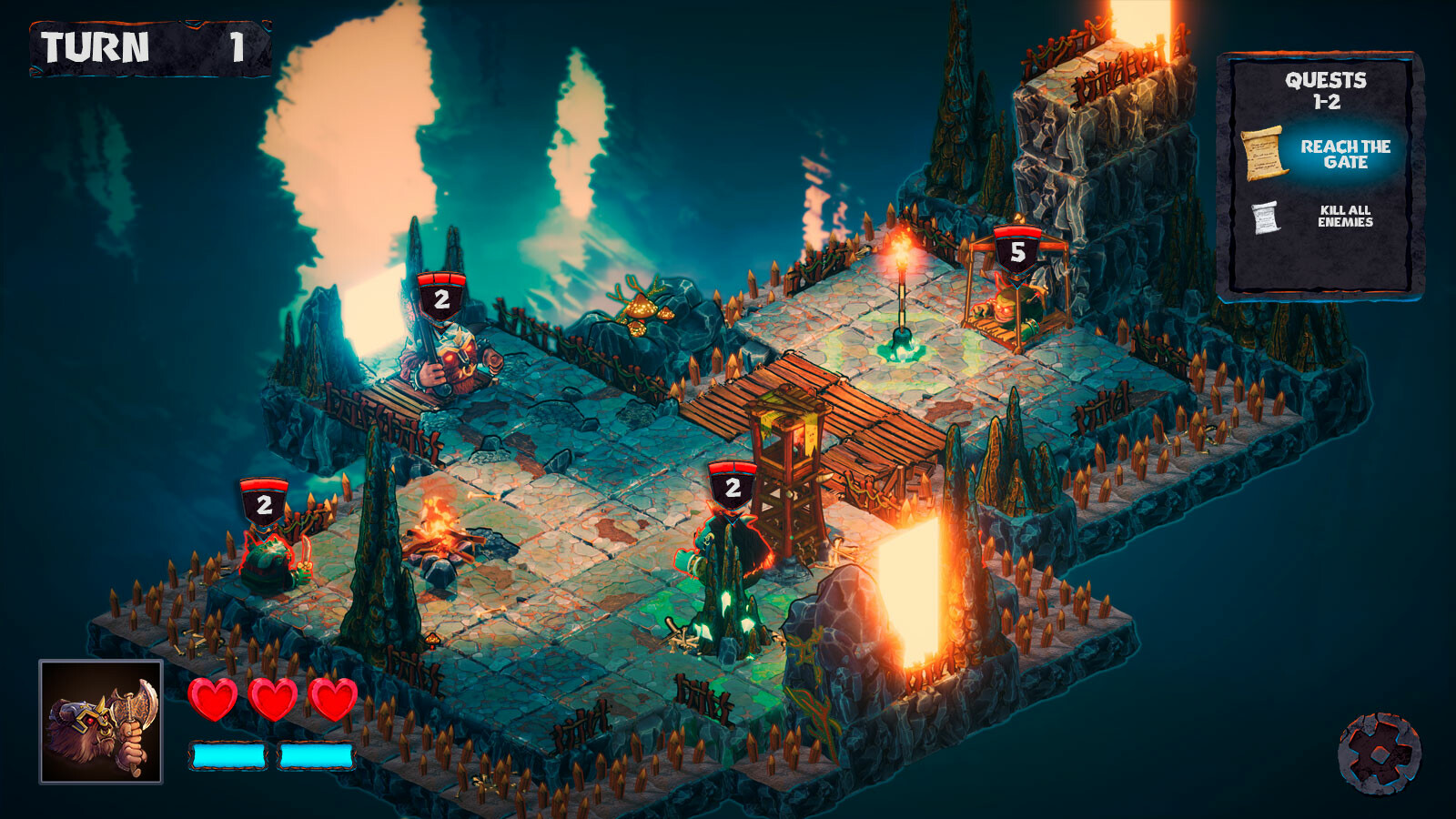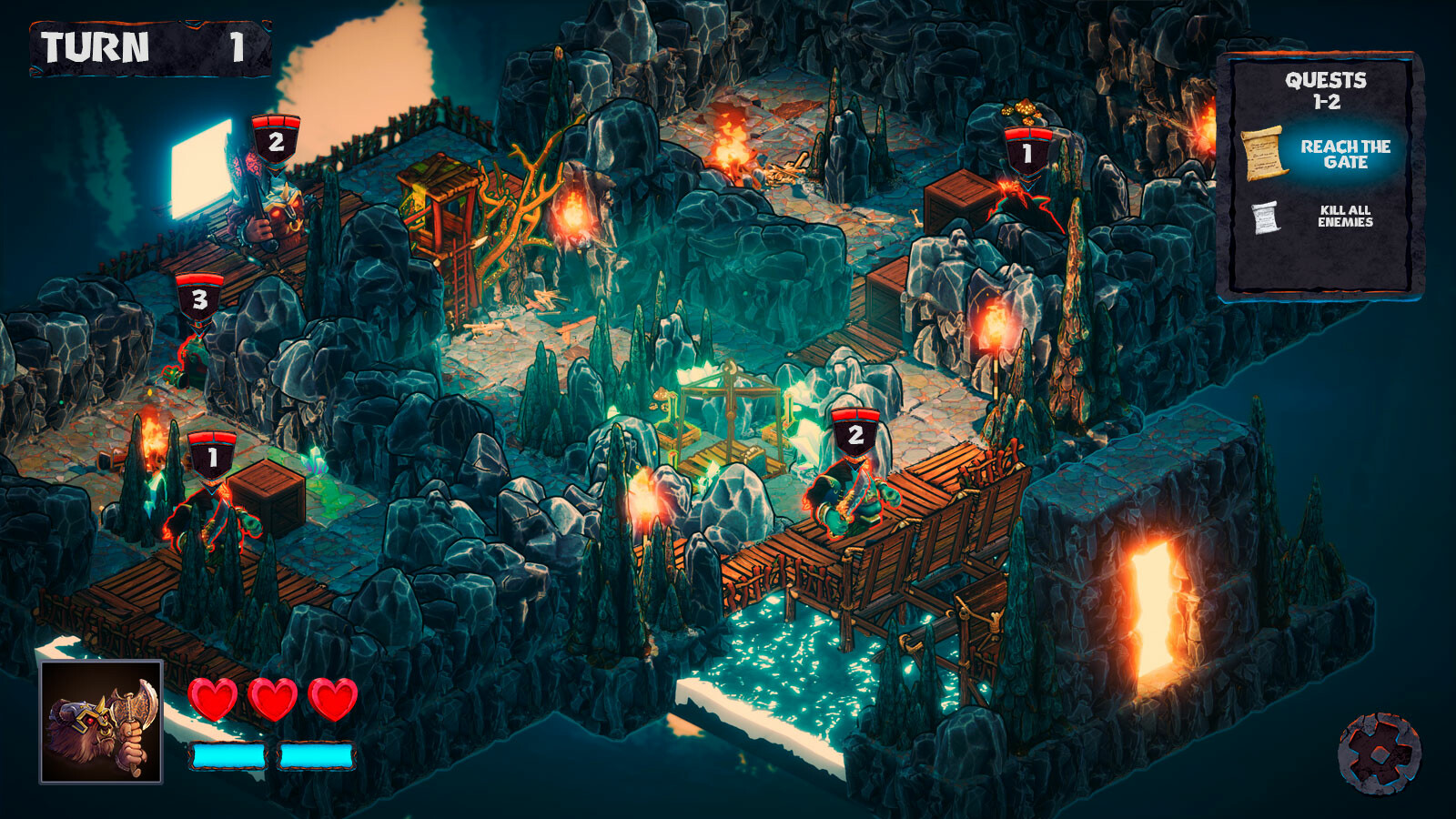Box Dungeons
Box Dungeons is a puzzle game inspired by classic tabletop RPGs like Dungeons & Dragons and turn-based dungeon crawlers such as the various spin-offs of the Mystery Dungeon series.

The game combines many of the expected elements of an RPG with the simple yet versatile mechanics of a sliding puzzle. Players control a character who slides through rooms to attack enemies, collect treasure, and complete the main objective of each stage to progress to the next.
Each playable character has their own abilities that they unlock in their skill tree as they complete rooms and gain experience (EXP). These abilities modify how players can solve puzzles, with many puzzles requiring the use of these specific skills.
At the end of each dungeon, players encounter the Boss room. Here, they must utilize the abilities they have acquired throughout their progression to face off against the Boss, who possesses unique special abilities for that fight.
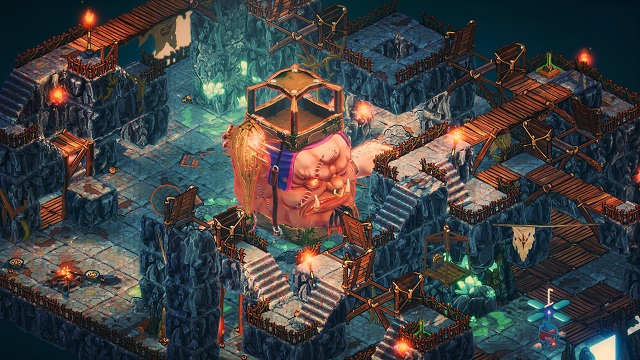
- A turn-based system by which enemies make moves and take actions every turn following set patterns, creating puzzles that are in constant shift and require the player to identify these patterns and plan their path accordingly in order to solve them.
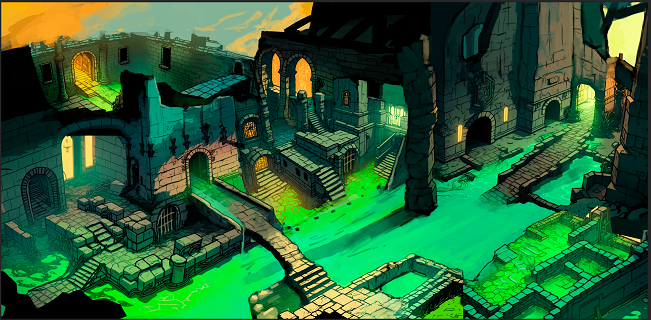
- The dungeons’ floors include environmental hazards and interactive elements that the player can either avoid or use in their favor, perhaps pushing an enemy into a spike pit or crushing them with a rolling boulder.
Interactables also includes collectible elements, such as gold coins and treasure chests, that the player must collect in order to complete “side quests” for extra skill points.
- Each floor has objectives besides just clearing them. These “side quests” require extra planning to complete, adding a mostly optional layer of difficulty beyond simply completing the stage.
- Their objectives vary, including collecting loot, finishing the stage under a set amount of turns or even dispatching an enemy with an Overkill by dealing more damage than their maximum HP.
- Each player character has their own unique skill tree from which they unlock new abilities, both passive and active, that either allow new ways to solve puzzles or are required to clear them.
- Each dungeon is tailored for their corresponding character’s skill set, with distinct environment, enemies, and mechanics to match classic themes for both fantasy TTRPGs and classic RPGs, such as the Goblin Cave.
- The short-fused Goblin Warrior uses “Fury of the Small” to deal damage to targets stronger than them.
The battle-hardened Hobgoblin can “Parry” attacks from the front, reducing the damage they take.
And there are many more.
- On the last floor of every dungeon, the player is challenged to a Boss battle, such as the raging Goblin Warband!
Those stages involve beating a powerful foe designed with unique mechanics tailored to be tackled by the skills available to the corresponding player character.
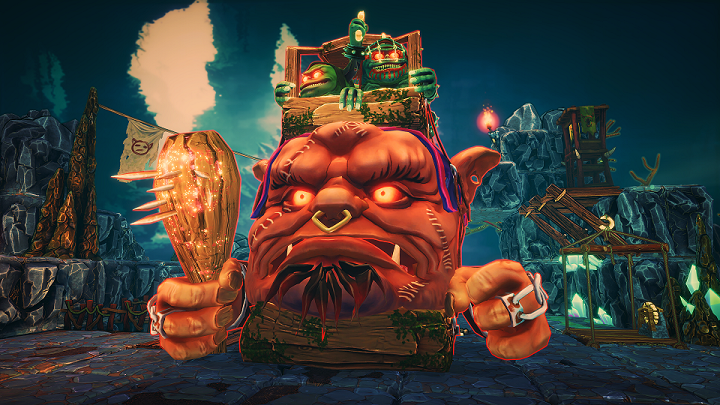

The game combines many of the expected elements of an RPG with the simple yet versatile mechanics of a sliding puzzle. Players control a character who slides through rooms to attack enemies, collect treasure, and complete the main objective of each stage to progress to the next.
Each playable character has their own abilities that they unlock in their skill tree as they complete rooms and gain experience (EXP). These abilities modify how players can solve puzzles, with many puzzles requiring the use of these specific skills.
At the end of each dungeon, players encounter the Boss room. Here, they must utilize the abilities they have acquired throughout their progression to face off against the Boss, who possesses unique special abilities for that fight.

FEATURES
- A turn-based system by which enemies make moves and take actions every turn following set patterns, creating puzzles that are in constant shift and require the player to identify these patterns and plan their path accordingly in order to solve them.

- The dungeons’ floors include environmental hazards and interactive elements that the player can either avoid or use in their favor, perhaps pushing an enemy into a spike pit or crushing them with a rolling boulder.
Interactables also includes collectible elements, such as gold coins and treasure chests, that the player must collect in order to complete “side quests” for extra skill points.
- Each floor has objectives besides just clearing them. These “side quests” require extra planning to complete, adding a mostly optional layer of difficulty beyond simply completing the stage.
- Their objectives vary, including collecting loot, finishing the stage under a set amount of turns or even dispatching an enemy with an Overkill by dealing more damage than their maximum HP.
- Each player character has their own unique skill tree from which they unlock new abilities, both passive and active, that either allow new ways to solve puzzles or are required to clear them.
- Each dungeon is tailored for their corresponding character’s skill set, with distinct environment, enemies, and mechanics to match classic themes for both fantasy TTRPGs and classic RPGs, such as the Goblin Cave.
Enemies have skills too!

- The short-fused Goblin Warrior uses “Fury of the Small” to deal damage to targets stronger than them.
The battle-hardened Hobgoblin can “Parry” attacks from the front, reducing the damage they take.
And there are many more.
- On the last floor of every dungeon, the player is challenged to a Boss battle, such as the raging Goblin Warband!
Those stages involve beating a powerful foe designed with unique mechanics tailored to be tackled by the skills available to the corresponding player character.

